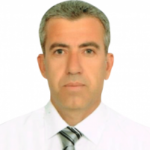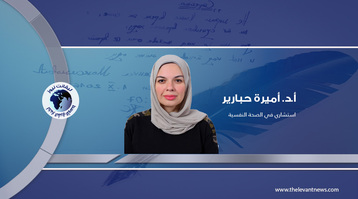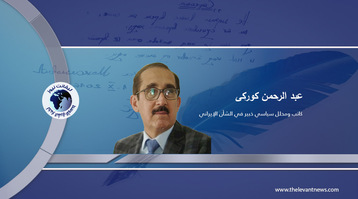-
What Is Going on Between the Poles of the Ruling Alawite Sect in Syria?

In the beginning of this month, Rami Makhlouf, the first cousin of the Syrian president, Bashar al-Assad, inflamed a media hype and an unexpected political surprise. Makhlouf, who is considered as the richest man in Syria and the owner of the Syrian Telecom, blamed al-Assad on Facebook videos for his being treated badly by his intelligence forces. On both Facebook videos, Makhlouf, criticised and accused al-Assad of sending security services to arrest his employees and to take over his business.
The dispute between Makhlouf and al-Assad at this critical time in Syria is very influential for a set of reasons. The row between Syria’s most powerful tycoon, and the Syrian president unveils invisible fissure between the most important pillars of the ruling regime. This imperceptible fracture has not only internal roots but also external origins and imprints. Since Makhlouf posted his first video on Facebook on 30th April, thousands of dissimilar comments on social media and hundreds of disparate analyses on newspapers have been released. This is apart that million of people inside Syria are aghast because of the uncertain future.
At any rate, and irrespective of the truth and details of the disagreement between al-Assad and his first cousin Makhlouf, however, the declaration of the dispute on social media has too much and so important indications. Once the dispute is made public, it means that the quarrel between most significant pillars in the ruling regime has reached the point of no return. This, in turn, reveals the underlying causes of this perilous conflict and the consequences that may lead to in the foreseeable future, given that Rami Makhlouf is the main bankroller of the war that al-Assad has waged against his opponents since 2011. Therefore, Makhlouf was one of
the pro-Syrian regime figures who faced financial and economic sanctions by US and EU since the first years of the Syrian civil war. According to many reports, this crisis has begun when the regime’s authorities seized Makhlouf‘s ‘Al-Bustan Association’ in 2019 and disbanded its armed groups. In December 2019, the Syrian government puts Makhlouf’s funds and companies under precautionary sequestration on charges of tax evasion and fraud. In this context, the expert on Syrian affairs, Fabrice Balanche, says: “In Syria, it must always be remembered that anti-corruption campaigns are many, but they are useless, and their goal is simply to drop the heads that stand out”.
On 10th May, the Sunday Times published a report entitled “Syria’s money man falls foul of Basher al-Assad’s ruling family”. The report stated that Rami Makhlouf, who was one of the most prominent funders of al-Assad’s regime during the years of the civil war, has become
excessively strong and may become a burden on al- Assad regime in the future. Therefore, alAssad has considered that it is the time to weaken the man and to strip him of his sources of power and influence.
There are several prime factors behind the dispute between the political, military and intelligence pole in the Syrian regime represented by Bashar al-Assad on the one hand, and the financial and economic pole represented by Rami Makhlouf on the other hand. The first factor, as previously mentioned, is that Makhlouf's role has exceeded the permissible limit, especially since the President’s wife, Asma, and his brother, Maher, are sharing the same hostile attitude towards Makhlouf family. The second factor is represented in the Syrian regime's urgent need for funds as a result of the suffocating economic crisis that is ravaging
Syria after nearly ten years of civil war. The third factor is al-Assad's desire to prove that he is still the most powerful man in Syria, especially after the harsh criticism levelled by the Russian media because of the corruption of his apparatuses and the weakness of his army.
In Syria, since al-Assad family's seizure of power in 1970, Rami Makhlouf case has not been the first, nor will it be the last, in which politics intertwined with the interests of the most powerful Alawite families in Syria. "Of course, this is a problem at the heart of the regime," says Blanche, noting that "Assad is toppling his relative like his father did with his brother Rifat, who forced him to leave the country in 1984”.
In the case of Rami Makhlouf, the Syrian president may be convinced this time to diminish Makhlouf's role or force him to leave Syria and live in exile. However, if Makhlouf becomes a real threat to al-Assad, then the latter will not hesitate to get rid of him because, under tyrannical and totalitarian regimes, no one is immune or out of danger

by : Jwan Dibo
Tags
You May Also Like
Popular Posts
Caricature
Syrians' concerns now
- December 10, 2024
Syrians' concerns now #Syria
#Bashar_al-Assad
#Liberation_of_Syria
#Syrians
#Future_of_Syria
#Levant_News

opinion
Report
ads
Newsletter
Subscribe to our mailing list to get the new updates!


















